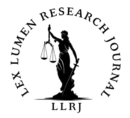Illustrated by Esha Jain
Summer Intern – Lex Lumen Research Journal (2025)
CASE BRIEF:
The Supreme Court’s decision in Lily Thomas vs Union of India (AIR 2000 SC 1650) stands as a pivotal judgment on the intersection of personal law, constitutional rights, and the misuse of religious conversion to evade anti-bigamy statutes in India. The case originated when Sushmita Ghosh approached the Court after her husband, G.C. Ghosh, converted to Islam solely to marry another woman without dissolving their subsisting Hindu marriage. The petitioner, Lily Thomas, challenged this practice, arguing it violated the rights of women and undermined the sanctity of marriage under the Hindu Marriage Act, 1955.
The Supreme Court, with a bench comprising Justices R.P. Sethi and S. Saghir Ahmad, held that conversion to Islam does not automatically entitle a Hindu husband to contract a second marriage without first obtaining a legal divorce from his Hindu wife. The Court declared that such a second marriage is void under Section 11 of the Hindu Marriage Act, and the husband is liable for prosecution under Sections 494 and 495 of the Indian Penal Code for bigamy. The judgment emphasized that Article 25 of the Constitution, which guarantees freedom of religion, does not permit an individual to commit a legal wrong or infringe upon the fundamental rights of others, especially the spouse from the first marriage. The Court clarified that the right to practice and propagate religion must not be misused to defeat the provisions of secular marriage laws and highlighted the importance of maintaining the dignity and sanctity of marriage. The decision also referenced the need for a Uniform Civil Code under Article 44, recognizing the complexities and potential for abuse that arise from the coexistence of multiple personal laws in matrimonial matters. The Court found no violation of Article 21 (right to life and personal liberty) in upholding the criminality of bigamy in such cases, and it further noted that conversion for the sole purpose of contracting a second marriage is not a genuine exercise of religious freedom but a misuse of legal and religious provisions. By holding that a Hindu marriage must be legally dissolved before a second marriage, regardless of religious conversion, the Supreme Court reinforced the principle that personal law cannot be used as a shield to bypass statutory protections against bigamy.
The Lily Thomas case thus set a significant precedent, ensuring that the legal rights of women in marriage are protected and that the secular fabric of Indian law is upheld, preventing the exploitation of religious conversion as a loophole for polygamy. This judgment continues to influence debates on personal law reform and the implementation of a Uniform Civil Code in India, underscoring the judiciary’s role in harmonizing individual rights with societal norms and legal mandates.


